Chicago Cubs All-Time Team
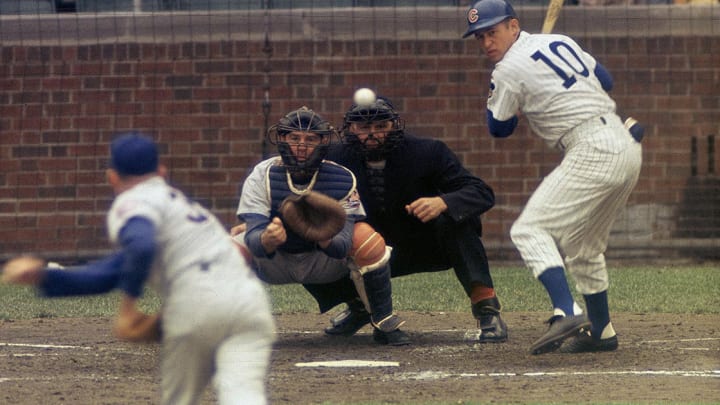
Chicago Cubs All-Time Team
Catcher: Gabby Hartnett
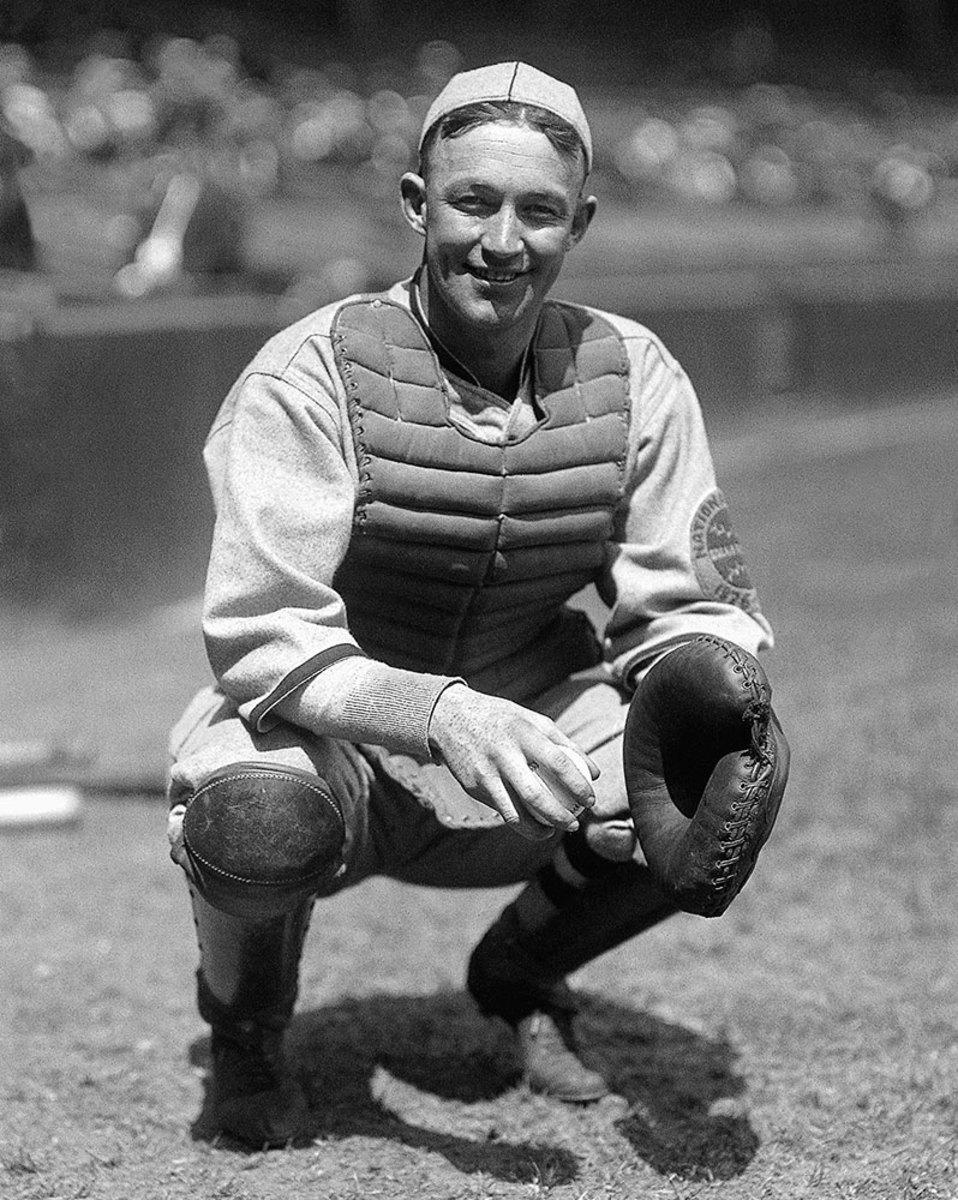
Until Mr. Cub came along, that was a moniker that would have suited Hartnett just fine. He’s still the franchise’s career leader among catchers in games played, at-bats, runs, hits, doubles, triples, home runs, RBIs, batting average, on-base percentage and slugging percentage. Hartnett was elected to the Hall of Fame in 1955.
First Baseman: Cap Anson
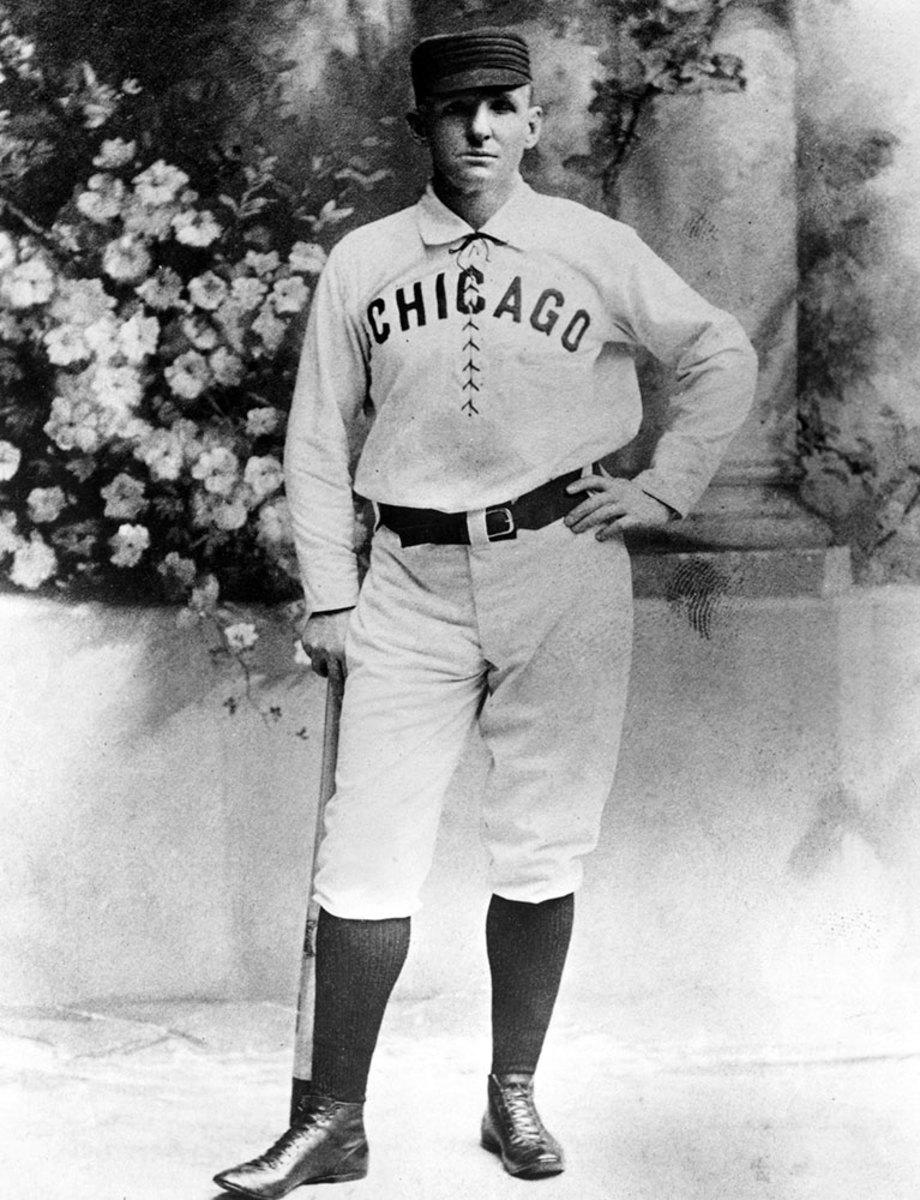
This may have been the most competitive position, and that’s without including Banks, who actually played more games at first base than he did at shortstop. Bill Buckner, Mark Grace and Derrek Lee from more recent decades are all intriguing candidates, but the choice is Anson, a Hall of Famer and 19th-century stalwart whose franchise marks for runs, hits, doubles, RBIs and batting average still stand.
Second Baseman: Ryne Sandberg
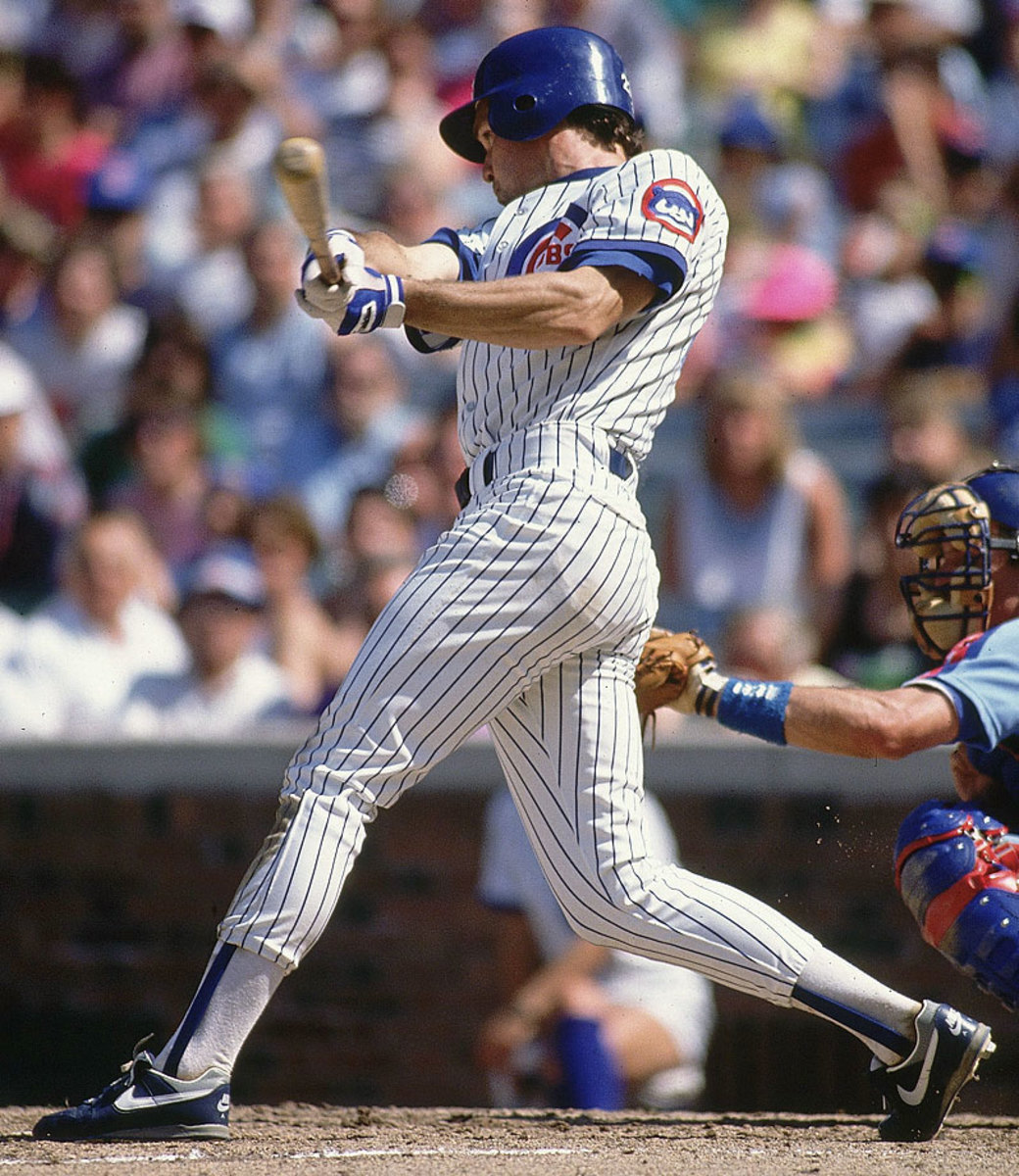
His 282 home runs are more than 200 better than the next-highest second-sacker, which is just one reason the Hall of Famer is an easy call at this spot. His 10 All-Star berths, nine Gold Gloves and MVP-winning season in 1984, when the Cubs reached the postseason for the first time since 1945, are nice bonuses.
Shortstop: Ernie Banks
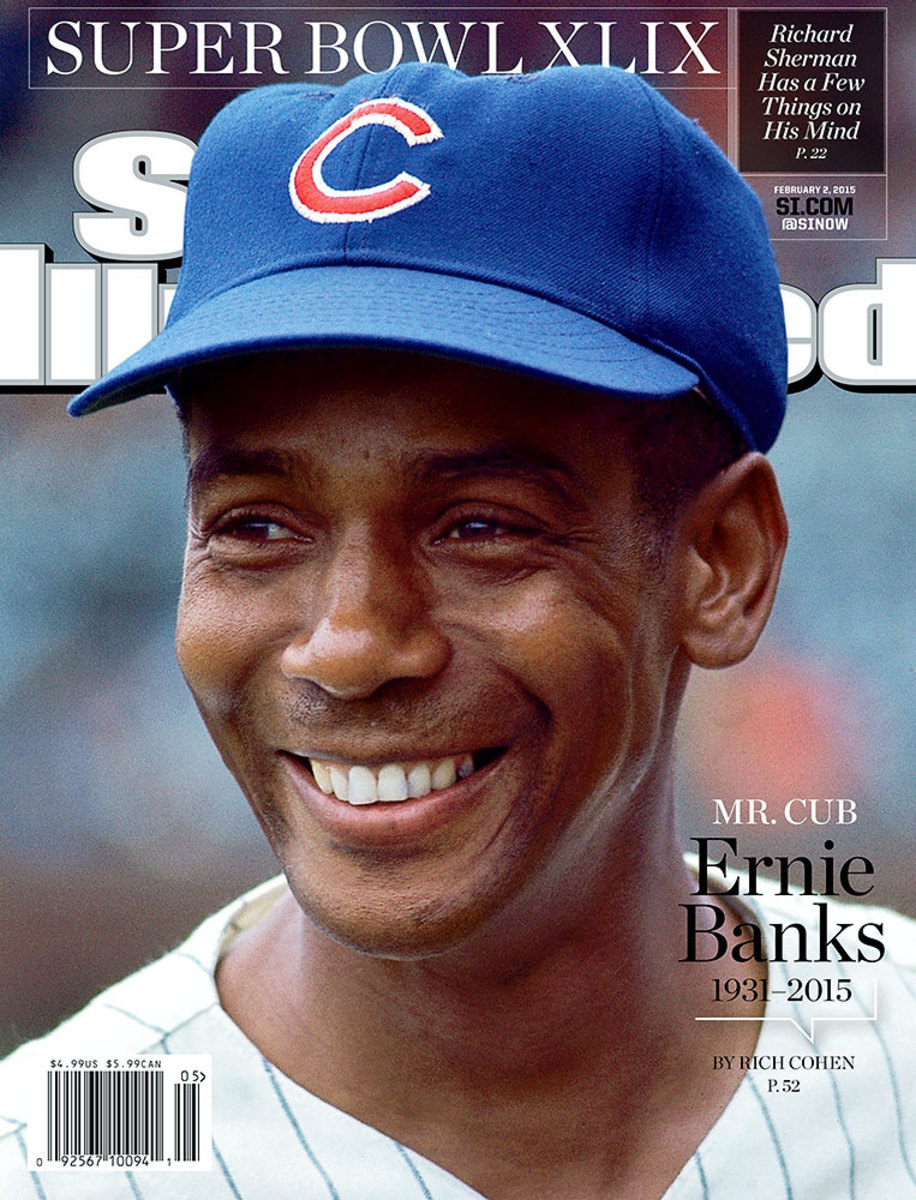
Banks won two MVPs and hit more than half his 512 career home runs while playing shortstop. He still ranks first in Cubs history in games, at-bats and heartbreak, for having played the most games in major league history without reaching the postseason.
Third Baseman: Ron Santo

Controversially left out of the Hall of Fame until after he died at age 70 in 2010, Santo was a mainstay for 15 years in Chicago, from 1960 to ’74, making nine All-Star teams, winning five Gold Gloves and leading the league in walks four times.
Leftfielder: Billy Williams
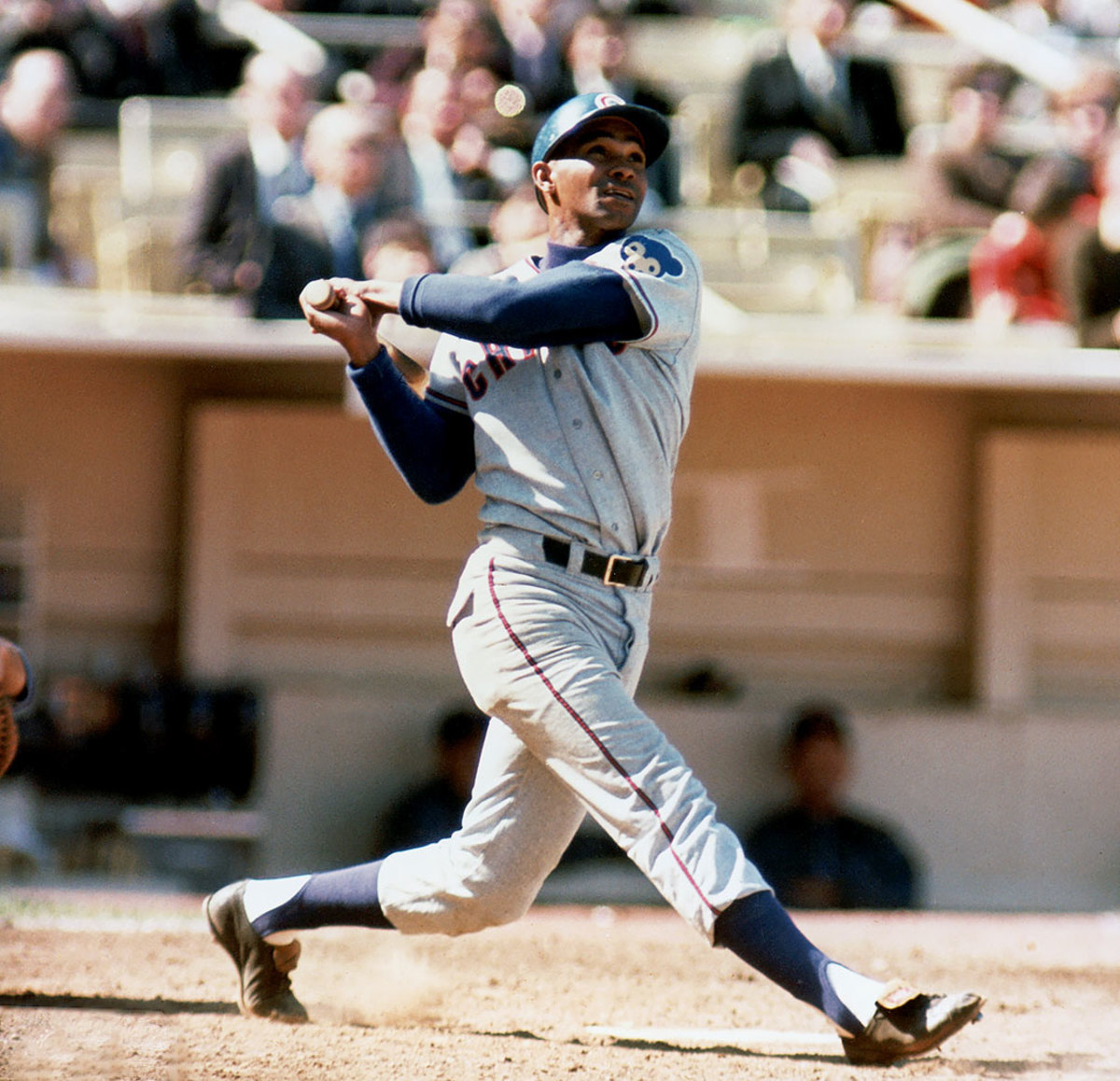
The 1961 NL Rookie of the Year hit .300 five times, made five All-Star teams and had a streak of 1,117 consecutive games played from 1963 to 1970 that still ranks as the sixth-longest in MLB history. Williams was elected to the Hall of Fame in 1987.
Centerfielder: Hack Wilson
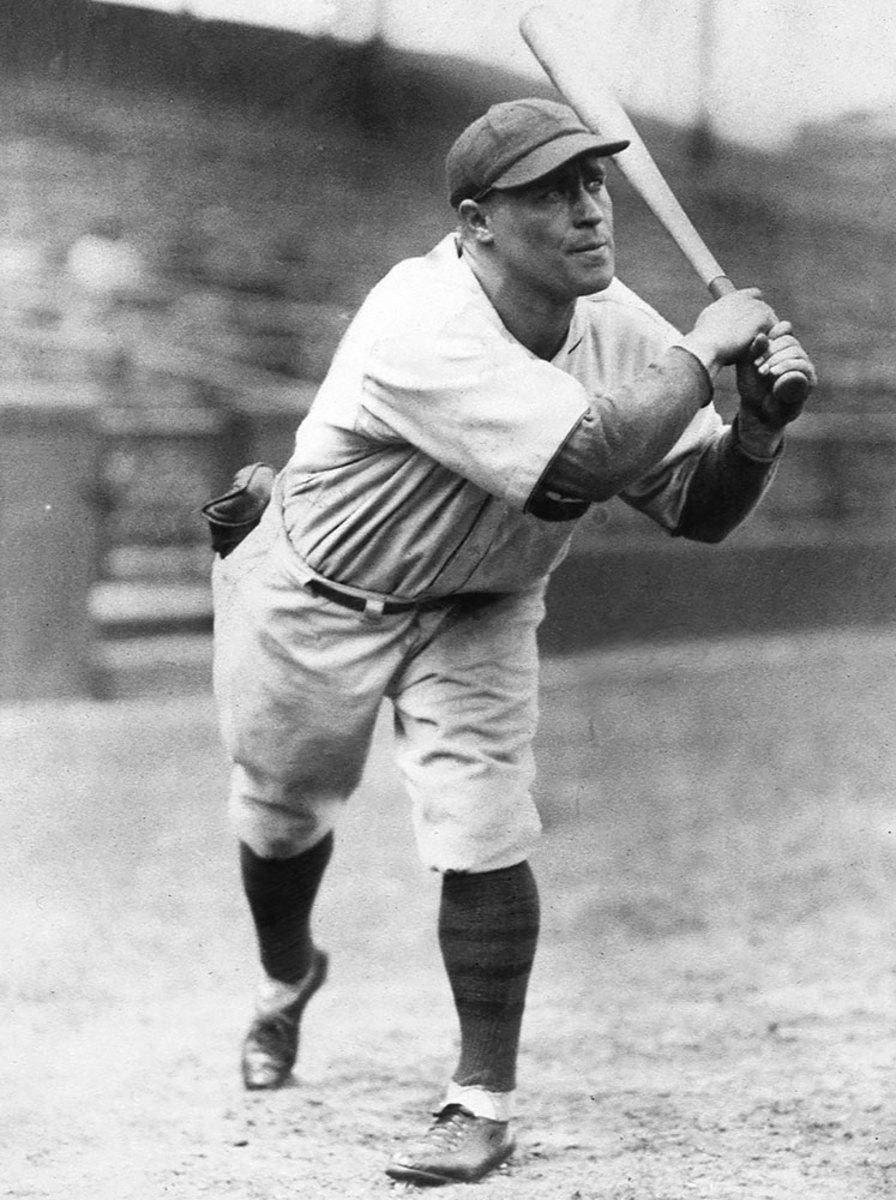
His 191 RBIs in 1930 remain the single-season major league record and came in a year in which he also hit 56 home runs and posted a 1.177 OPS. Though he only spent six years in Chicago, he is still the franchise leader in on-base percentage and slugging percentage. He made the Hall of Fame in 1979, 31 years after he died.
Rightfielder: Sammy Sosa
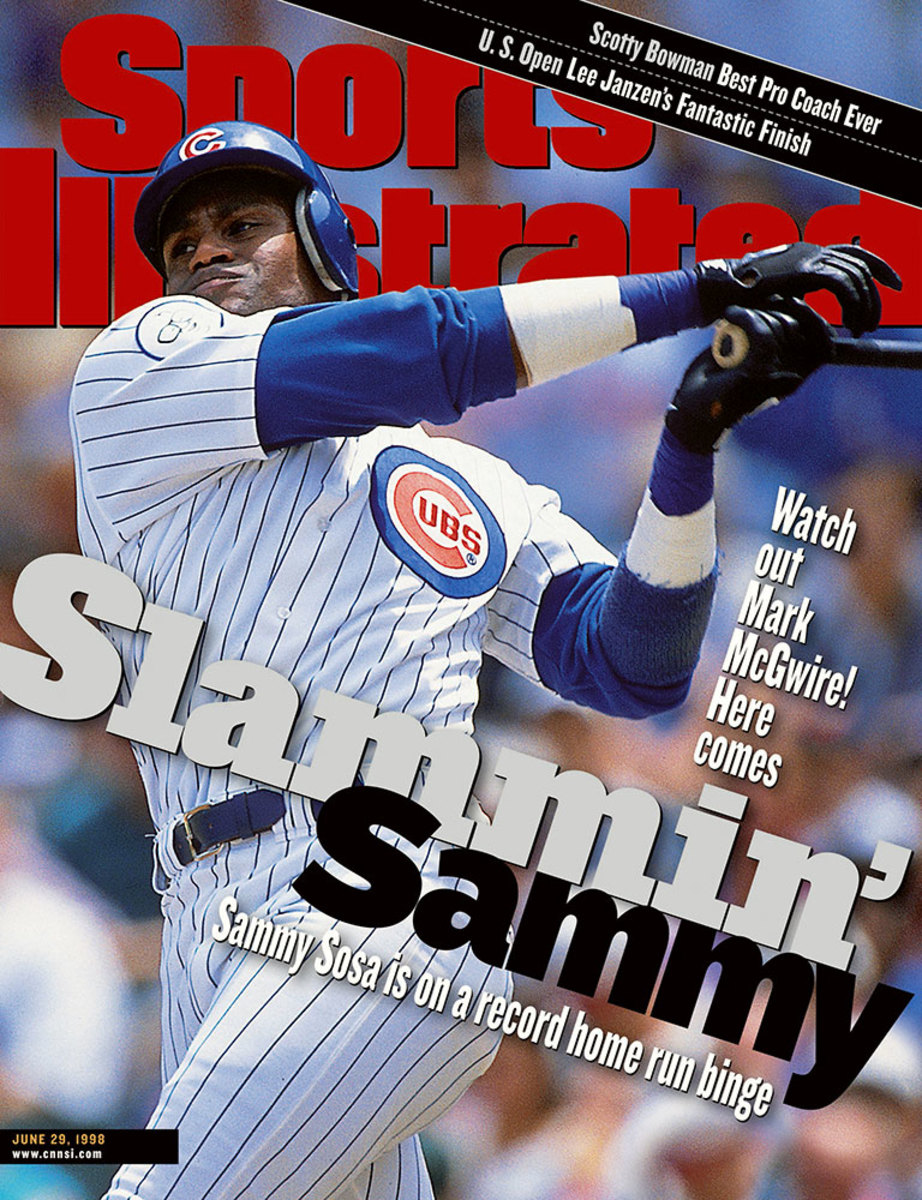
Corked bats and PED allegations aside, no player made Wrigley Field hop like Swingin’ Sammy. His absurd home run totals—including 66 in 1998, 63 in ’99 and 64 in 2001—overshadowed a well-rounded player who hit .300 four times and had seven straight years of 15 or more steals for the Cubs.
Starting Pitcher: Ferguson Jenkins
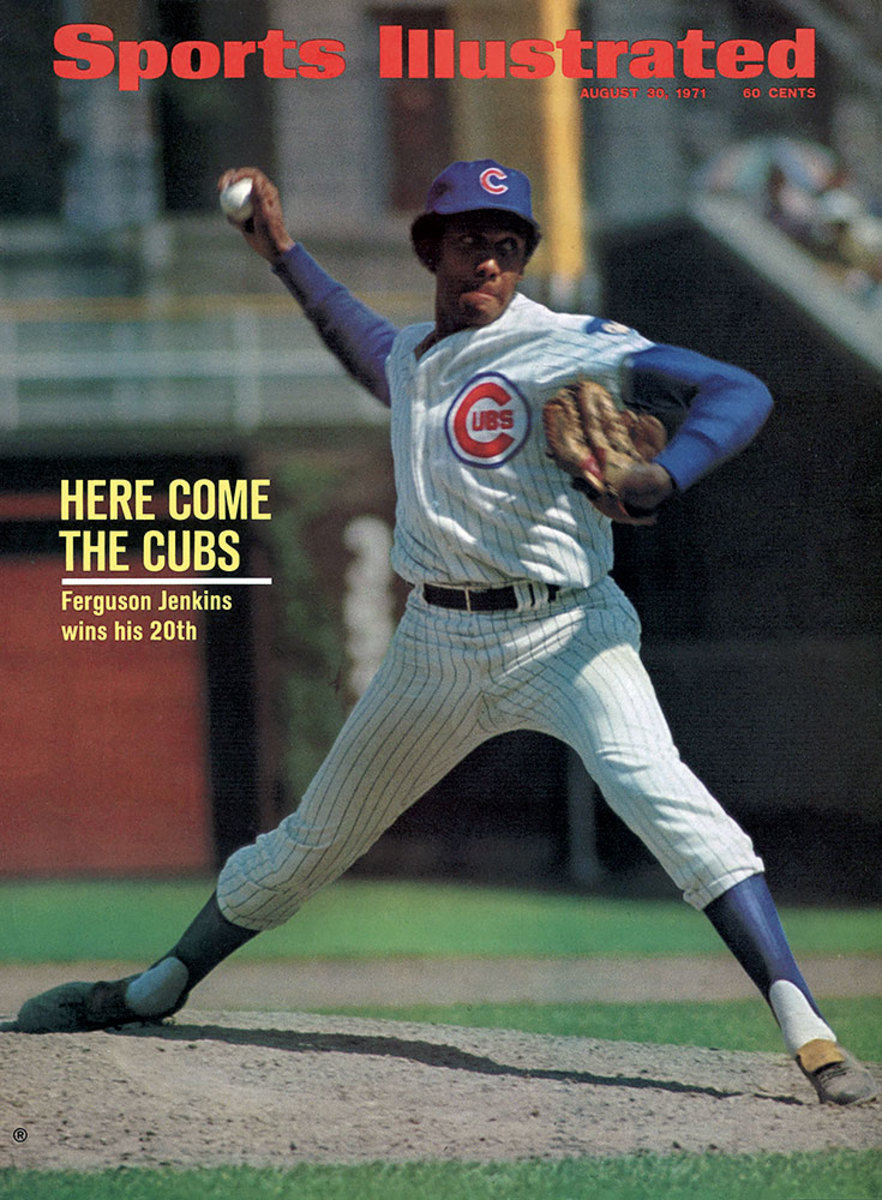
Jenkins arrived in a trade with the Phillies in 1966 at age 23 that soon became one of the most lopsided in baseball history. He won at least 20 games seven times and had five top-3 Cy Young finishes, including his win in 1971. He was elected to the Hall of Fame in 1991.
Starting Pitcher: Mordecai "Three Finger" Brown
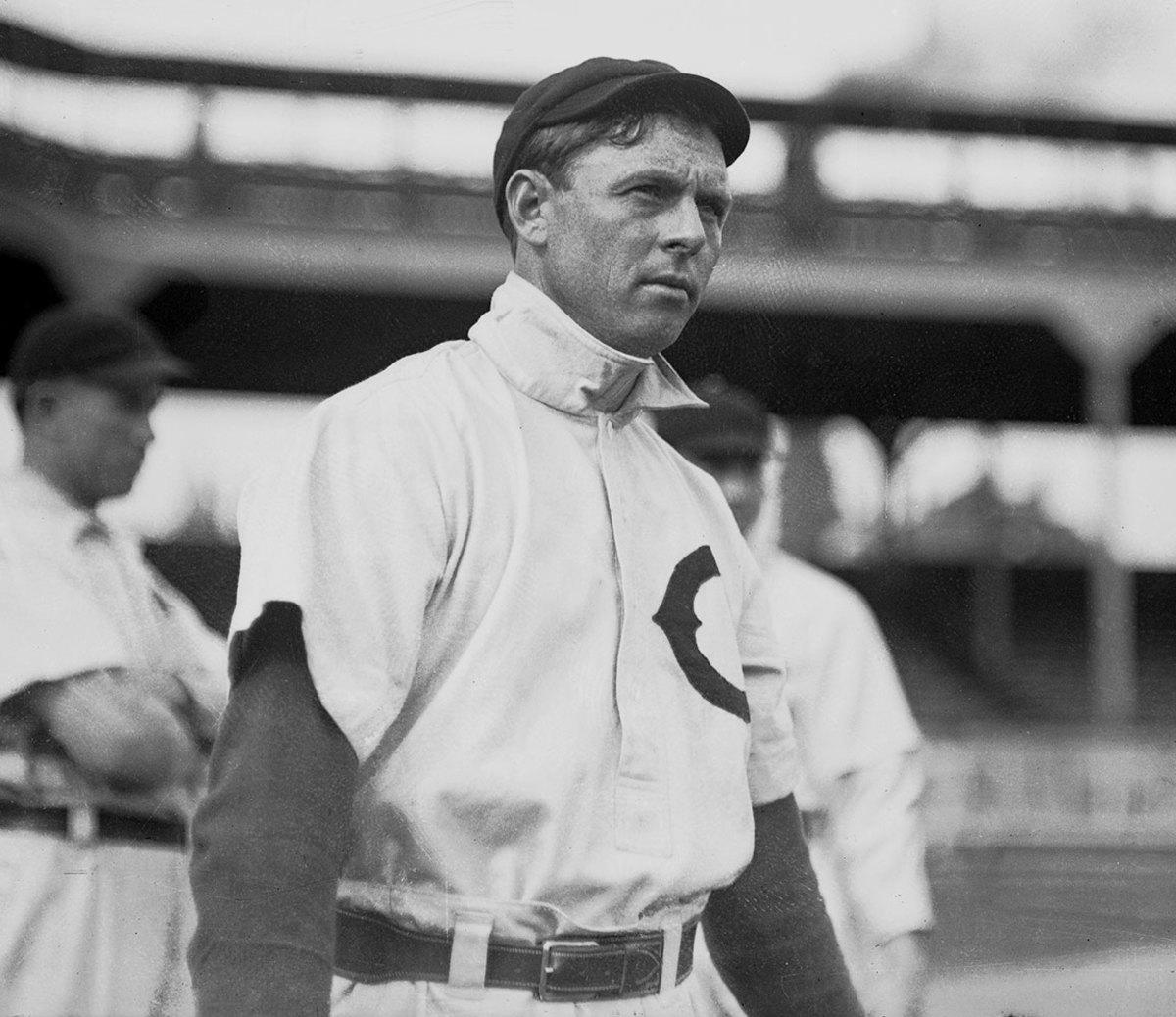
A childhood accident mangled his pitching hand but didn’t stop Mordecai Brown from winning 20 or more games six times, posting a sub-2.00 ERA six times (including 1.04 in 1906) or making the Hall of Fame.
Relief Pitcher: Bruce Sutter
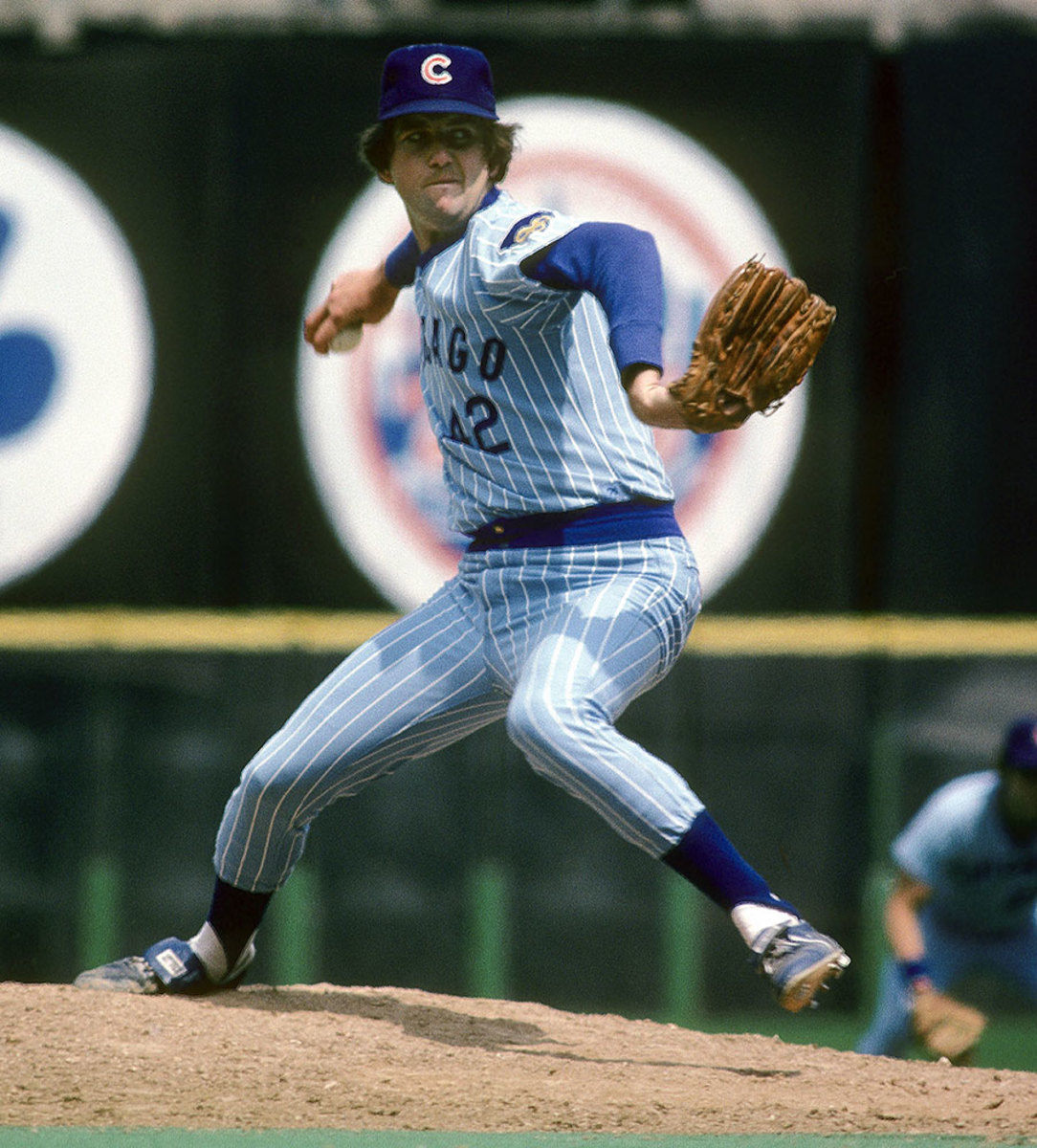
Though successor Lee Smith also had several standout seasons for the Cubs and holds the franchise saves record with 180, Sutter had the better career in Chicago, topping Smith in ERA (2.39 to 2.92), WHIP (1.05 to 1.25) and strikeout to walk ratio (3.32 to 2.44).
